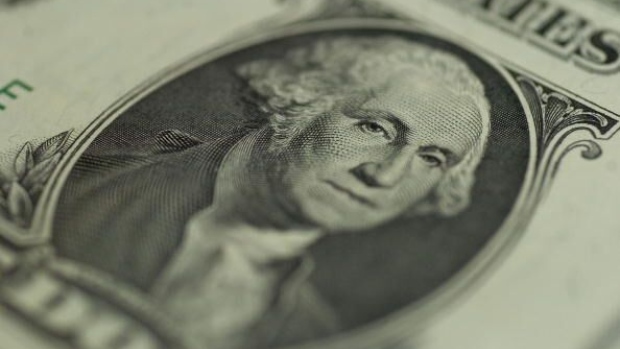May 9, 2023
Goldman’s Hammack Sees ‘Real Risk’ to Dollar From Debt-Cap Brawl
, Bloomberg News

(Bloomberg) -- A failure to find a resolution to the US debt ceiling standoff presents a genuine risk to the standing of the dollar, according to the outgoing head of the external committee that advises the Treasury Department on borrowing.
“There is real risk to the US dollar,” said Beth Hammack, the co-head of the global financing group at Goldman Sachs Group Inc. who has chaired the Treasury Borrowing Advisory Committee for around half a decade. “Anything that moves us away from being viewed as the world’s reserve currency, of being the safest most liquid asset in the world, is bad for the American people, bad for the dollar and bad for the US government.”
Investors are watching Washington with a keen eye as President Joe Biden hosts House Speaker Kevin McCarthy and other congressional leaders at the White House on Tuesday in a bid to resolve the ongoing impasse over the US debt ceiling and avoid a potentially catastrophic technical default.
Treasury-bill markets have started to factor in the risks of non-payment from next month onward after both Treasury Secretary Janet Yellen and the non-partisan Congressional Budget Office warned last week that there’s a risk the government could exhaust borrowing capacity as soon as early June.
Speaking on Bloomberg Television Tuesday Hammack said she agreed with Yellen that not resolving the ceiling issue would have “catastrophic consequences for the US economy.” If the Treasury stops making some payments it “would have a huge ripple effect,” she said.
The dislocations being created in the Treasury bills market, meanwhile are also “inefficient” and “create extra cost for the taxpayers,” according to Hammack.
A number of observers have raised concerns about the effect that the ongoing brawl over borrowing might have on the standing of the greenback, which is the world’s biggest reserve currency and at the heart of most international transactions.
“Dollar primacy is a national treasure,” former Biden administration economic adviser Daleep Singh said on Bloomberg Television Monday. “It allows us to fund our government at 20 to 50 basis points cheaper than it would otherwise. It allows us to absorb a shock like the 2011 downgrade of our credit rating. All of that is put at risk in terms of the long-term scarring effects of this type of debate.”
Singh, now chief global economist for PGIM Fixed Income, said the US is edging toward a “dangerous place” as it gets closer to the point where it might not be able to borrow, the so-called X-date. “This is very serious. A lot is at stake.”
While acknowledging that it is a so-called tail risk, the former deputy national security advisor for international economics and deputy director of the National Economic Council described the current situation as “gambling with an exorbitant privilege that has incalculable benefits.”
“We’re on the cusp of doing something great powers don’t do,” he said. “They don’t default. They don’t talk about default. They don’t think about default.”
--With assistance from Lisa Abramowicz, Tom Keene and Jonathan Ferro.
©2023 Bloomberg L.P.





